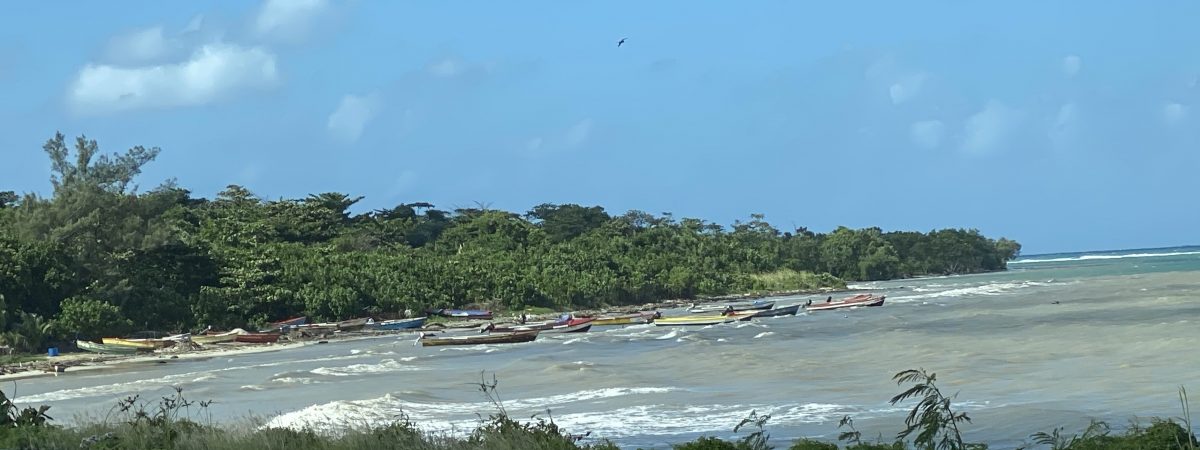As there is more than one side to a story, so there is more than one reason for a problem, and more than one solution. So, no answers provided, today. How much of Jamaica’s problems rest with the absence of things against the presence of things? Having asked that, as many people who read this may have viewpoints, and therein lies many a problem with fixing what we perceive is wrong with society: any and everyone could be right, and each of us does not have to agree with the analyses of others or their proposals. When things change in society it’s because of a critical mass that agree on where to go and how to get there. So, in that sense, the persistence of problems signals the absence of agreement on how to address them.
Today’s Gleaner has a editorial about ways to address Jamaica’s seemingly untouchable violent crime problems, and points to the remarkable turnaround in New York City (NYC), where the level of murders has returned to the level of the 1950s, with about 3 murders per 100,000 people (from around 30 in the 1990s) against Jamaica’s startling 59. The editorial touches a few raw nerves concerning Jamaica’s police force, compared to that of NYC (my emphases):
‘They targeted hotspots where murders, robberies and burglaries most often took place and went after the known and suspected criminals, who were sometimes picked up initially for small crimes. The police was substantially expanded, giving it the flexibility to do its tasks, without affecting its general policing functions.
Jamaica’s police force will probably insist that its approach is consistent with the New York City model – and may well be. It is not our sense, however, that it is done with the same energy and consistency that delivered success in New York City. And important for Jamaica, neither is the JCF open to the level of transparency and accountability that elicits the kind of society trust that would contribute to its effectiveness.
But, transforming Jamaica’s police force from an organisation with a reputation for corruption and ineptitude to an organisation that is professional, efficient, and accountable, demands new approaches to leadership. This must start with the top political leader, who apprehends that crime poses an existential threat to democracy, a civilised way of life, and the anarchy now imposed by criminals.’
If this assessment is correct, it begs many questions, such as why the police force would be anything but energetic or consistent in its task? But, why has the force been allowed to continue with such a damaging lack of transparency and accountability?

Not reducing or resolving crimes is not that different from problems with garbage. Those who commit the acts know they can get away easily. Those assigned to deal with it, don’t, for reasons acceptable or not. The persistent presence tells us that no one wants to address the problems.
As with things seen from an economics approach, the questions can be boiled down to who gains and loses from these failings? How much of the transfer of gains and losses are needed to make matters better? That’s the essence of the presence-absence dilemma.
To fix an imbalance does not require that parity be achieved or that one side has to win everything; it means the sides have to be satisfied with the prospective outcomes.
I’ve resolved in my mind why politicians may not want to see a reduction in crime, and it’s based on a cynical assessment of the political structure in place in Jamaica, and its system of rewards and spoils. But, I have not found a good argument for why the police force would want to preside over such a situation. Any ideas?

Over the last few years, whilst driving into Kingston every morning, I watched a community blossom and grow behind d the Ferry Police Station . No, it’s not an organized, government planned area, so I couldn’t understand how come the Police didn’t seem to notice it. If crimes begin to occur there, how will they get access to the particular home where a crime may be in progress? Did they not notice what was happening? This wI’ll only make their job harder…..I don’t understand it. Unless, they did mention it to the relecan’t authorities, and nothing came of that. So their action comes to nought. How many other issues high-lighted by them has been ignored? They are probably just disheartened, and just work because they know they have bills to pay. So sad.
LikeLike
You ‘couldn’t understand how come the police didn’t seem to notice it’? But, I’m sure they did, but ignored it, as has been the case with almost all informal settlements. Why? I could offer many reasons why the police would seem to turn a blind eye, including payment to avoid any moves to remove it.
LikeLike